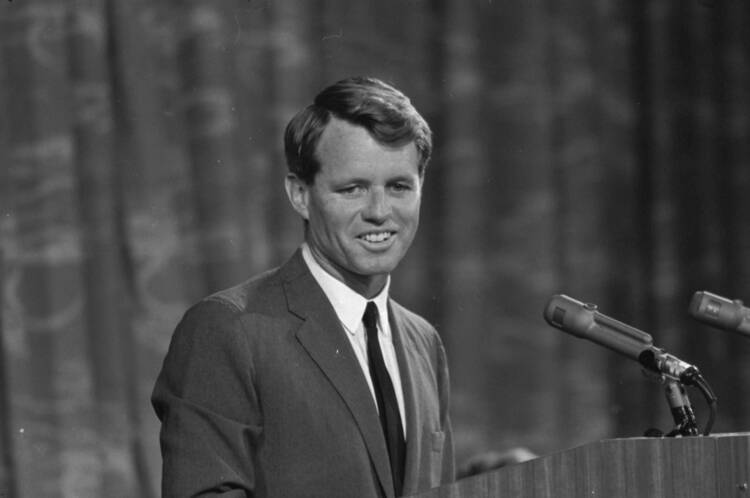Saturday, June 8, in Manhattan, was a day made up of many things. The pieces began to fall into place the evening before, as one walked the streets near St. Patrick's Cathedral.
There were more young men and women than you expect to see turn out for a wake, it is true. But there were other faces, too, black and white, masked with the special resignation under grief that comes only with age.
Then there was the heat. The Salvation Army set up its own mobile canteen to hand out paper cups of water to the line, three and four abreast, that moved along a mile of city pavement before entering the cathedral.
You marveled first at the quiet patience of the crowd as the police shepherded units of two or three hundred from waiting post to waiting post along Lexington and Park Avenues. How many in line had heard that first policeman's friendly caution that the journey from the corner of 47th Street and Lexington Avenue to St. Patrick's would take more than six hours?
At the end came the hushed walk down the cathedral's central aisle. There was time only for a glance at the flag-draped coffin resting before the main altar. Then you went out into the humid night.
It took a few minutes to put your finger on what was different about midtown Manhattan that Friday. Then you realized that the clusters of men and women quietly chatting on corners or sitting in silence on a stone bench or curbing were in fact holding an informal wake. Strangers before, they felt the need to talk the senseless tragedy out with others who could understand and share their feelings at such a time.
Saturday brought its own kaleidoscope of images, some stately, some prosaic, many capable of breaking a heart. Family was clearly the leit-motif. Not family in the sense of the glamorous qualities that have at times made the Kennedys a political or social prodigy, but of the homely ability to band together for strength in adversity.
Senator Ted Kennedy summed it up at the start of the liturgy in a moving phrase about his fallen brother: "He gave us strength in time of trouble, wisdom in time of uncertainty and sharing in time of happiness." After the assassination in Los Angeles, many parents found themselves hard pressed to answer an anguished, even embittered "Why?" from their children. Historians, psychologists and playwrights will someday give us their answers. Today, youngsters, and many not so young, find that an answer in the language of human reason does not come easy. For a nation bewildered and sometimes frightened by many things, there was meaning in a vivid display of faith and solidarity by the family that surely had most reason to ask "Why?"








